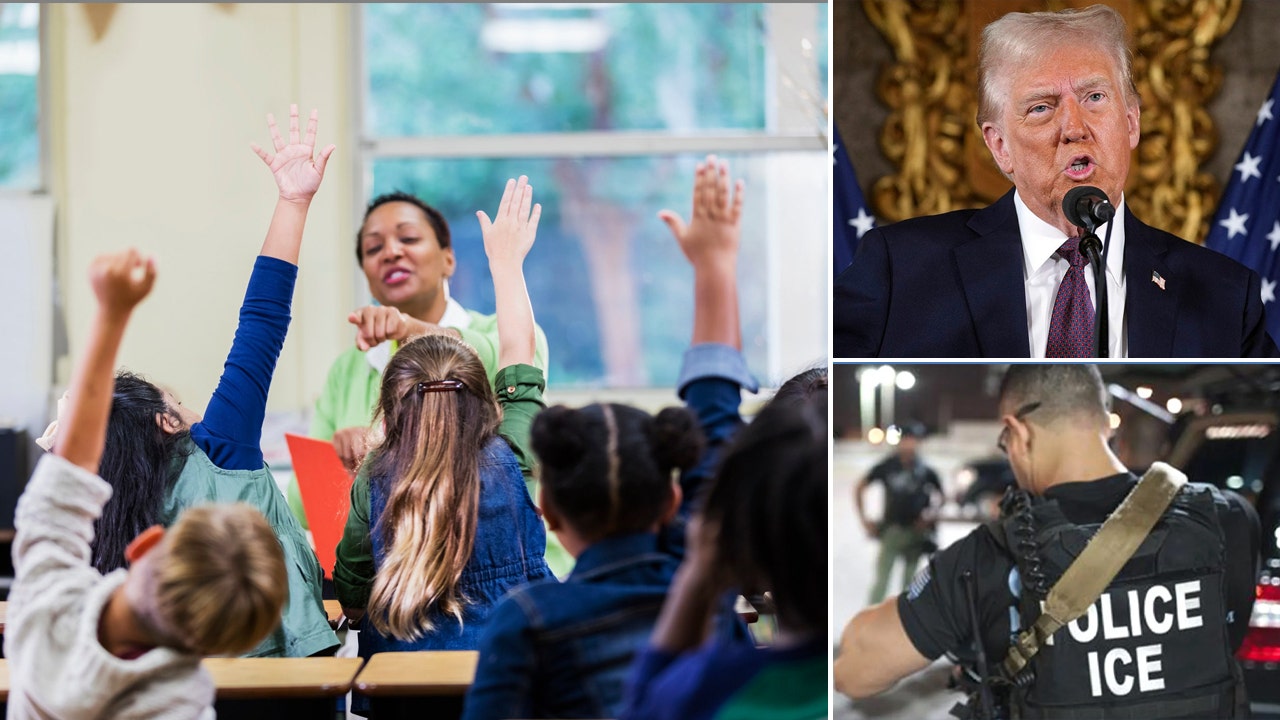Schools Nationwide Implement Strategies to Navigate Trump’s Immigration Policies
As the Trump administration’s immigration policies loom, schools across the country are taking proactive measures. The impact of these policies extends beyond politics, affecting the daily lives of students, teachers, and entire communities. With increasing concern over the safety and well-being of undocumented students and their families, many educational institutions are stepping up to create environments that prioritize learning and emotional support, while also protecting vulnerable populations.
Understanding the Landscape of Immigration Policies
The Trump administration’s approach to immigration has been characterized by stringent policies aimed at curbing illegal immigration and enforcing existing laws. These policies have included increased deportations, the implementation of the “zero tolerance” policy, and attempts to end programs like DACA (Deferred Action for Childhood Arrivals). Such measures have instilled fear amongst immigrant communities, leading to a significant impact on children who may not feel safe or secure in their educational settings.
Schools serve as critical safe havens for students, especially those from immigrant backgrounds. Recognizing this, many district leaders are developing and implementing strategies that not only comply with federal regulations but also prioritize the emotional and educational needs of all students.
Proactive Policies in Schools
In response to the challenges posed by Trump’s immigration policies, numerous schools nationwide have begun instituting policies that discourage teachers from cooperating with Immigration and Customs Enforcement (ICE). These strategies aim to protect vulnerable students and maintain a supportive learning environment. Here are some key approaches being adopted:
- Creating Safe Zones: Many schools are designating certain areas as “safe zones” where students can feel secure from the threat of ICE raids. This ensures that students have a place to express their concerns and seek support without the fear of deportation looming over them.
- Training Educators: Schools are providing training for teachers and staff on how to handle situations involving immigration enforcement. This includes understanding students’ rights and how to respond to inquiries from immigration officials.
- Establishing Clear Communication: Administrators are encouraging open dialogue between staff, students, and families to discuss immigration concerns. This helps in building trust and ensuring that families are aware of their rights and available resources.
- Legal Support Resources: Many districts are partnering with local legal aid organizations to provide resources and support for families facing immigration issues. Access to legal counsel can be crucial in navigating complex immigration laws.
Challenges Faced by Schools
While the proactive measures taken by schools are commendable, challenges remain. Fear and anxiety among students and families can hinder educational progress. Some of the challenges include:
- Student Absenteeism: In areas with a high population of undocumented immigrants, schools have reported increased absenteeism as families become fearful of attending school functions or even sending their children to school.
- Emotional Distress: The stress of living under the threat of deportation can take a toll on students’ mental health, leading to issues such as anxiety, depression, and decreased academic performance.
- Resource Limitations: Not all schools have the financial or human resources to implement comprehensive support systems for undocumented students and their families.
The Role of Community Engagement
In navigating the complexities of Trump’s immigration policies, community engagement has proven to be invaluable. Schools that actively involve parents, local organizations, and advocacy groups in their efforts tend to be more successful in creating supportive environments for students. Here’s how community engagement plays a vital role:
- Building Trust: When schools collaborate with community organizations, they foster trust among immigrant families, making it easier for those families to seek help and support.
- Advocating for Policy Change: Schools can join forces with local advocacy groups to lobby for fairer immigration policies and to protect the rights of students and their families.
- Providing Holistic Support: Engaging with community resources allows schools to offer a wide range of support services, from mental health to legal assistance, ensuring that families receive comprehensive care.
Examples of School Initiatives
Across the nation, various school districts have rolled out innovative initiatives aimed at supporting undocumented students. Here are a few noteworthy examples:
- Los Angeles Unified School District: This district has implemented policies that prohibit school police from cooperating with ICE, ensuring that students can learn without fear of deportation.
- Chicago Public Schools: Chicago has established “safe passage” routes and community partnerships to ensure that students can get to and from school safely, minimizing risks associated with immigration enforcement.
- New York City Schools: New York City has taken steps to educate students about their rights under immigration law, providing resources and support for affected families.
Looking Ahead: The Future of Education and Immigration
As the landscape of immigration policy continues to evolve, schools must remain vigilant and adaptable. Educators and administrators play a crucial role in not only safeguarding the educational rights of students but also in fostering a climate of inclusivity and respect. While challenges persist, the commitment of schools to implement supportive strategies is a hopeful sign that education can thrive even in uncertain times.
Ultimately, the actions taken by schools across the country to navigate Trump’s immigration policies reflect a broader commitment to the ideals of equality and justice. By prioritizing the needs of all students, including those from vulnerable immigrant backgrounds, educational institutions can cultivate a nurturing environment where every child can succeed, regardless of their immigration status.
In conclusion, schools nationwide are demonstrating resilience and compassion in the face of adversity. Through proactive measures, community engagement, and a dedication to student welfare, they are not only navigating the complexities of immigration policies but also shaping a brighter future for all students.
See more TED Talks World



